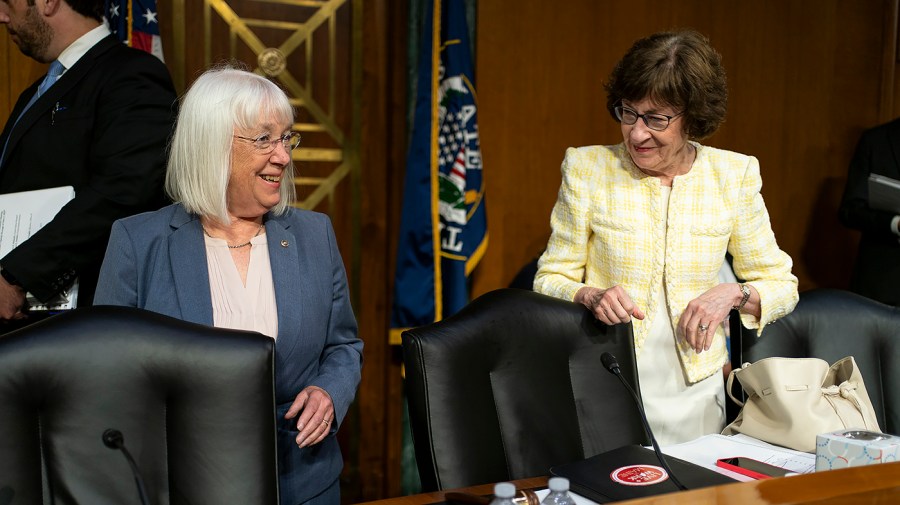The Senate Appropriations Committee rejected the Trump administration’s massive proposed funding cut to the National Institutes of Health, advancing a measure that would increase the agency’s budget by $400 million.
The White House budget called for slashing NIH by $18 billion, a decrease of 40 percent. Instead, the committee advanced the bill on a 26-3 vote, delivering a bipartisan rebuke of the administration’s efforts to defund medical research.
“This committee has had multiple hearings over the last several months and heard from patients, families and researchers about the importance of NIH funding,” said Sen. Tammy Baldwin (D-Wis.). “This committee has, in a bipartisan manner, prioritized NIH and the research it supports to develop life-saving treatments and cures for devastating diseases.”
The committee rejected the administration’s plan to revamp the way NIH pays universities, medical schools, and other research centers for overhead costs, as well as a proposal to restructure the agency and consolidate all 27 NIH institutes into eight new entities.
The bill includes a $100 million increase for Alzheimer’s disease research, a $150 million increase for cancer research, and a $30 million increase for the Office of Research on Women’s Health.
“To the scientists wondering if there will even be an NIH by the end of this administration: this committee’s resounding message is yes,” said Sen. Patty Murray (D-Wash.), the committee’s vice chair.
“Congress has your back — we’re not going to give up the fight against cancer, Alzheimer’s, or rare diseases,” Murray said.
Democratic committee members also expressed frustration at the White House Office of Management and Budget’s (OMB) repeated encroachments into the appropriations process and attempts to halt spending of money that was already approved by Congress.
Since President Trump took office, NIH has terminated or frozen nearly 5,000 awards totaling $4 billion, while another approximately $15 billion has not yet been obligated.
“Right now, they are illegally hiding apportionments data that would let us know whether funds we passed are being spent as intended and help us strengthen the bills we are in the middle of writing on. It is absurd we have to mark up bills, while being kept in the dark,” Murray said.
Murray and other members repeatedly mentioned an OMB memo from earlier this week that, through a footnote, abruptly prevented NIH from issuing grants. While the decision was reversed, Democrats said it showed the administration’s disdain for congressional spending authority.
“One footnote, from an unelected bureaucrat — overruling Congress and even NIH, to block $15 billion in funding for things like cancer research,” Murray said.
Outside of NIH, the bill maintains flat funding for other health agencies and programs, including the Title X family planning program and domestic HIV prevention.
The bill also rejected the nearly $4 billion — or 50 percent — cut and consolidation to Centers for Disease Control and Prevention programs included in the White House budget request.
But looming over the process is the possibility of another rescissions package from the administration.
“Should the administration put forward a new rescissions package, in many cases, in our bill, we have rejected proposals that the President has made to make drastic cuts. That’s Congress speaking up and saying we have a different position on that, and so I expect my Republican colleagues will stand by the decisions we’ve made,” Baldwin told reporters ahead of the hearing.
Still, the HHS budget is far from being final. The House has so far only passed two of its annual funding bills, and has not held an Appropriations Committee markup on its version of the HHS bill.

